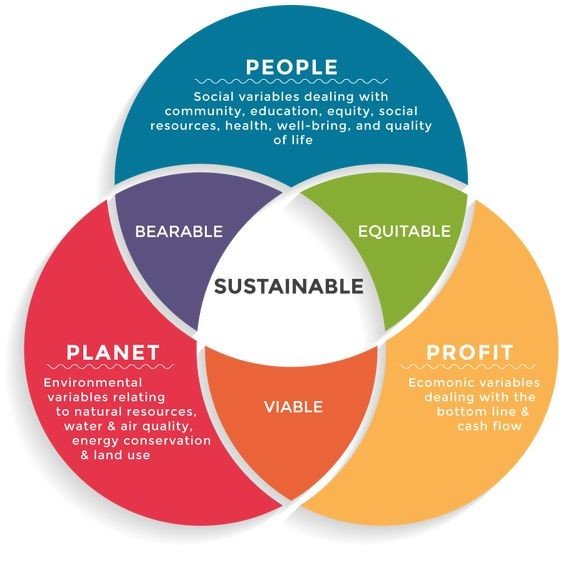Reshaping the Developing World: The Power of Private Investment in Infrastructure

Reshaping the Developing World: The Power of Private Investment in Infrastructure
In a rapidly changing world, few topics have garnered as much attention as the transformative power of private investment in infrastructure development. The landscape has evolved drastically in just a few short years, and the World Bank’s recent article underlines the critical role that private investment plays, particularly in developing countries. As someone deeply involved in sustainable tourism, advocating for Sustainable Development Goals (SDGs) and sustainability, I find it imperative to delve into this subject.
Analysis:
The article rightly underscores the critical role of private investment in addressing the multifaceted challenges faced by developing countries. From climate change to surging debt, inflation, and conflicts, these challenges are indeed impeding progress in these regions. It is commendable that private sector investment in infrastructure has been a common practice to bridge the financing gap. The report highlights trends of recovery post-pandemic, particularly in the transport and energy sectors
However, it’s imperative to acknowledge that these investments are not uniform across regions. The concentration of investments in a few countries raises concerns about equity and sustainable development. Moreover, the article identifies the insufficient number of projects compared to the pre-pandemic period, underscoring the need for comprehensive strategies.
Suggestions
Global Investment Diversification:
Encourage private investors to diversify their global portfolios. Develop strategies that attract private capital to a broader range of developing nations. This not only ensures a more equitable distribution of benefits but also addresses the disparities in infrastructure development.

Alignment with Sustainable Development Goals:
Promote the alignment of private investments with specific SDGs. Ensure that these investments directly contribute to goals such as poverty reduction, clean energy, climate action, and sustainable cities and communities. This approach provides a clear path for investments to have a more profound and lasting impact.
Robust Risk Mitigation:
Develop comprehensive risk mitigation mechanisms, including insurance and guarantees, to protect private investments. This would make investments in developing countries more attractive by providing investors with a sense of security, which is vital for long-term projects.

Transparent Public-Private Partnerships (PPPs):
Advocate for transparent and accountable PPPs. These partnerships should prioritize local community needs, foster innovation, and create a conducive environment for private investors. Efficiency, sustainability, and local involvement should be key criteria for evaluating PPP projects.
Strengthening Regulatory Frameworks:
Support the strengthening of institutions and regulatory frameworks in developing countries. A stable and predictable regulatory environment is vital to attract private investments. This includes addressing legal and bureaucratic hurdles that might deter investors.
Capacity Building for Sustainable Infrastructure:
Invest in local capacity building to ensure that developing countries can efficiently manage and maintain infrastructure projects. A focus on sustainability, environmental stewardship, and community engagement should be integrated into capacity-building initiatives.

Innovative Financing Mechanisms:
Encourage the exploration of innovative financing mechanisms, such as green bonds and impact investing. These mechanisms can mobilize funds specifically for sustainable infrastructure projects.
Global Collaboration for SDGs:
Promote international collaboration among governments, private sector entities, and civil society to align investments with specific SDGs. A global partnership approach is crucial to pool resources and expertise for achieving common sustainability objectives.
Education and Awareness:
Stress the importance of educating all stakeholders, including private investors and local communities, about the SDGs and their role in sustainability. Knowledge and awareness are foundational for aligning actions with global goals.
Advocacy and Policy Reforms:
Engage with governments and international organizations to advocate for policies and regulations that incentivize private investment aligned with SDGs. This might include advocating for tax incentives and other supportive mechanisms.

Transparency, Accountability, and Sustainability Metrics:
Emphasize the need for transparency, accountability, and the use of sustainability metrics in evaluating infrastructure projects. The adoption of Environmental, Social, and Governance (ESG) criteria can ensure responsible and sustainable practices.
Youth Engagement for Sustainable Advocacy:
Mobilize youth to become advocates for the SDGs and sustainability. Their energy, creativity, and commitment can be a powerful force for positive change, and they can play a significant role in influencing private investors.
Conclusion:
In conclusion, private investment, when guided by these principles, has the potential to reshape the global infrastructure landscape and influence the energy transition. It’s essential that the World Bank Group, in collaboration with global partners, plays a pivotal role in implementing these recommendations to ensure a more sustainable, inclusive, and equitable future for developing countries.

Further Reading – Reference Article
Thought-Provoking Question: As we navigate the transformative potential of private investment in infrastructure, let’s reflect: What innovative ideas or partnerships do you believe could further accelerate sustainable development in developing countries? Share your visionary insights in the comments below.
Call to Action: Our journey towards a more sustainable and equitable world continues beyond this article. I invite you to join me in the ongoing dialogue on LinkedIn. Share your thoughts, experiences, and ideas for harnessing the power of private investment in infrastructure for the greater good. Together, we can create actionable strategies and drive positive change. Let’s inspire and learn from each other as we shape a better future.
COP 28
Paving the Way to COP28: How Private Investment Aligns with Global Climate Goals
As we stand on the threshold of COP28, the urgency of addressing climate change has never been more apparent. The world is looking towards this pivotal moment, hoping for concrete actions and strategies to mitigate the global climate crisis. And in this climate of urgency and opportunity, private investment in sustainable infrastructure is emerging as a powerful player in reshaping our world.
COP28 and the Climate Imperative
COP28, the 28th UN Climate Change Conference of the Parties, is set to be a defining event on the global climate action stage. It brings together nations, leaders, and stakeholders from around the world to discuss, debate, and decide on strategies to address climate change. As we approach this landmark event, we are faced with a stark reality – the need for bold, transformative action is now more pressing than ever.
Private Investment as a Catalyst for Change
The intersection of private investment in sustainable infrastructure and the goals of COP28 is an area ripe with potential. Private investors and infrastructure developers are increasingly recognizing that their projects can no longer exist in isolation from the climate agenda. We are witnessing a shift towards sustainability at the core of infrastructure development, aligning projects with the United Nations Sustainable Development Goals (SDGs) and the global climate targets set under the Paris Agreement.
Showcasing Impactful Projects
To truly appreciate the potential of private investment, let’s look at some tangible examples. Projects like the “Green Highway Project” in Pakistan, the “Solar-Powered Smart Cities” initiative in India, and the “Renewable Energy Microgrid” in sub-Saharan Africa are not just isolated endeavors; they are emblematic of the transformative power of private investment. These projects not only drive economic growth but also directly contribute to climate action and align with the goals set for COP28.
Public-Private Partnerships for Climate Resilience
One of the most exciting prospects of private investment in infrastructure is the role of public-private partnerships (PPPs) in addressing climate challenges. The collaborative approach of PPPs, where the public sector partners with private investors, can lead to more efficient, sustainable, and innovative infrastructure solutions. Together, they can take on climate adaptation and mitigation projects, helping nations meet their climate commitments.
Recommendations for a Sustainable Future
As we anticipate the outcomes of COP28, it’s clear that private investment in sustainable infrastructure is a game-changer. However, for this potential to be fully realized, collaboration, innovation, and commitment are key. In this context, my article explores the transformative power of private investment and suggests ways to further align these efforts with the objectives of COP28.
Join me in this exciting journey towards COP28, where we’ll witness how private investment is becoming a central force in shaping a more sustainable, resilient, and climate-friendly world. Together, we can make a powerful impact and be part of the global solution to combat climate change.
Exciting News
Join the Sustainability Conversation Ahead of COP28 with “SustainBizz Podcast”
As we approach the pivotal COP28, the need for impactful discussions on sustainable development has never been more pressing. That’s why I’m thrilled to announce a special collaboration with the “Sustainbizz” podcast, an insightful platform where thought leaders converge to explore the most critical issues in sustainability.
In the coming weeks, we’ll be bringing you engaging interviews, discussions, and webinars on the intersection of private investment in infrastructure, Sustainable Development Goals (SDGs), and the pressing challenges leading up to COP28. The “Sustainbizz” podcast will be your gateway to expert insights and innovative solutions, all aimed at creating a more sustainable and equitable world.
Stay tuned, as we unite with thought leaders and change-makers to inspire action and ignite the global sustainability conversation. Together, we can make a powerful impact as we journey towards COP28 and beyond.
Stay tuned for more insights and discussions on private investment, sustainability, and the road to COP28.
(By Erum Khan, Thought leader, Senior Fellow on UNSDG’s, Next Generation Leader, Sustainable Tourism Expert/Brand Strategist, Host at SustainBizz Podcast – Coffee with Erum, Director Innovation & Planning Travel Explorer Weekly, Director Odyssey, Tourism Diplomat, Speaker at UN International Conference on Sustainable Development, NY)

